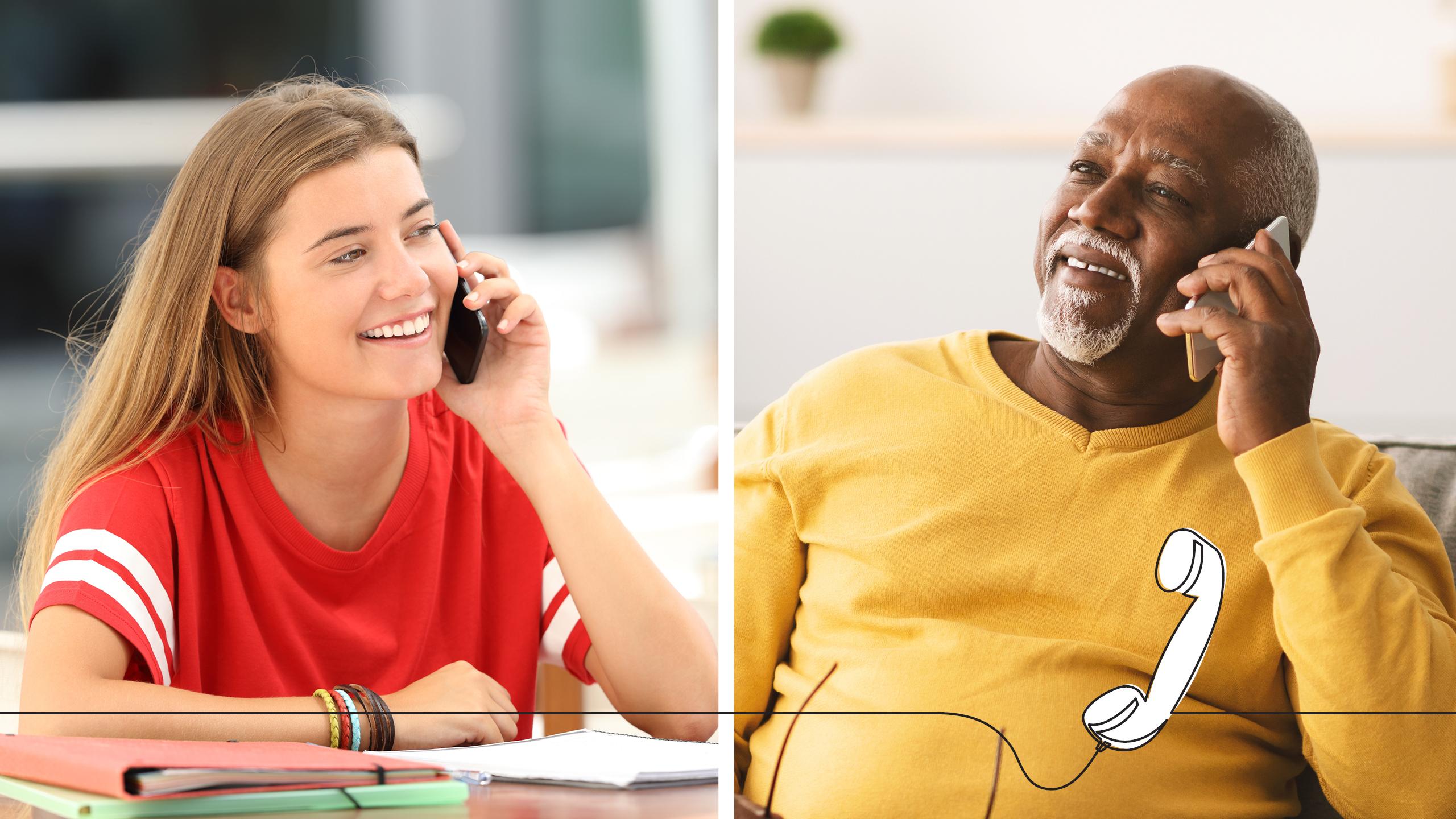The COVID lockdowns are still affecting people’s emotional wellbeing and communication. This time in a more positive way.
Dr. Virginia Tompkins, associate professor of psychology at Ohio State Lima, developed the Senior-to-Senior Program as a class project her Adult Development and Aging course students could do from home. Meaningful learning had to continue even when face-to-face projects couldn’t. It is an added bonus that the college students were able to connect with a group who needed the contact.
“This project was developed at the start of the COVID-19 pandemic when many nursing home residents were extremely isolated from friends and family,” Tompkins said. “I wanted to find a way to connect with those residents with someone at a time when they may not have many opportunities for socialization outside of their homes.”
Since the project kicked off during the pandemic, students in both the Adult Development and Aging class and the Lifespan Development class have been paired with a nursing home resident or other senior in the community. The student and the senior talk each week about anything that interests them and the senior citizen’s life satisfaction, emotions and depressive symptoms are measured both before and after the study period.
Thanks to an Outreach and Engagement Grant from Ohio State, Tompkins was able to hire two student assistants, expand her recruitment of older adults across the state of Ohio and offer gift cards to the participants. The project has also expanded to classes that she is not teaching. In this case, Counseling Psychology and Introduction to Social Work. For spring semester 2023, 19 students and three campus volunteers are paired with a senior.
A preliminary look at the research data shows an overall positive change in the life of the senior from the start of the interaction to the end of project.
“Older adults become more satisfied with life, less lonely, and less depressed after the experience,” Tompkins said.
The other half of the senior-to-senior equation benefits from the project as well. Many who participate aspire to pursue careers in psychology, health-related fields and social work. Building skills as empathetic listeners is critical for them.
“Having the opportunity to work on the Senior to Senior project has been a great privilege. Oftentimes seniors offer me wonderful advice, leaving me wiser with each conversation,” said Leuviah Blakma, a junior in psychology. “This project will help me to navigate through life and to cherish each moment of it. More importantly, it will benefit society as a whole by allowing us to gain further insight on senior citizens, a grossly understudied population.”
Beyond that, they made friends across the generation span.
“The students have really seemed to enjoy the interaction. Many have formed strong connections with the seniors they call and have really enjoyed getting to know them.” Tompkins said.
While the research review is still in its preliminary stages, Tompkins has some takeaways we can all use in our own lives.
“Social connection is important at every stage of life, though older adults are sometimes overlooked or forgotten. We should treat all older adults as people, not ‘old’ people. They have expertise, interests, stories, memories, aspirations, and fears to share with us just as younger adults do. Get to know your older neighbors and check in on your loved ones and friends who are older. Ask them questions that go beyond the present. Many of the older adults I have called for this last cohort report simply being lonely and not having anyone to talk to, even if they are mostly content with this stage of life.”
